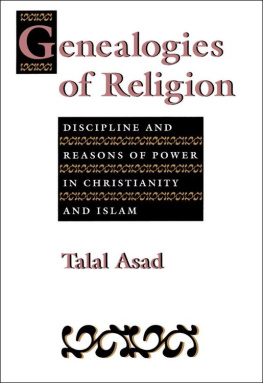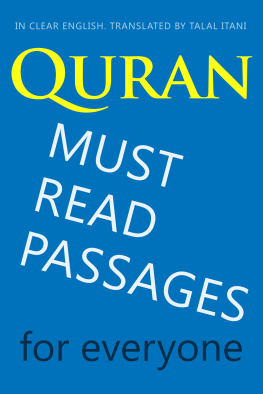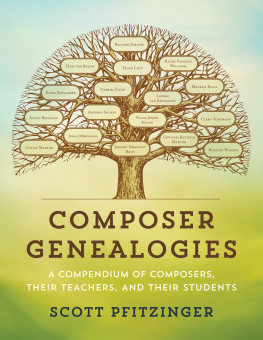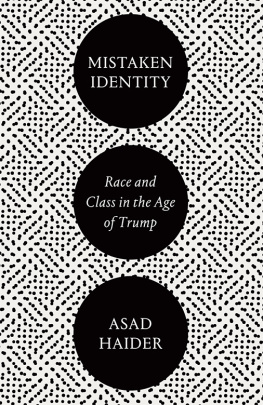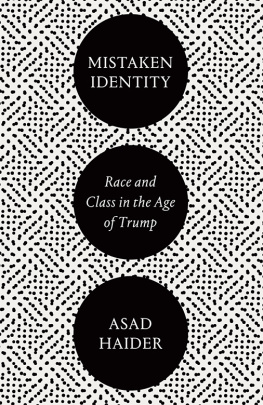Talal Asad - Genealogies of Religion
Here you can read online Talal Asad - Genealogies of Religion full text of the book (entire story) in english for free. Download pdf and epub, get meaning, cover and reviews about this ebook. year: 1993, publisher: Johns Hopkins University Press, genre: Religion. Description of the work, (preface) as well as reviews are available. Best literature library LitArk.com created for fans of good reading and offers a wide selection of genres:
Romance novel
Science fiction
Adventure
Detective
Science
History
Home and family
Prose
Art
Politics
Computer
Non-fiction
Religion
Business
Children
Humor
Choose a favorite category and find really read worthwhile books. Enjoy immersion in the world of imagination, feel the emotions of the characters or learn something new for yourself, make an fascinating discovery.
- Book:Genealogies of Religion
- Author:
- Publisher:Johns Hopkins University Press
- Genre:
- Year:1993
- Rating:3 / 5
- Favourites:Add to favourites
- Your mark:
- 60
- 1
- 2
- 3
- 4
- 5
Genealogies of Religion: summary, description and annotation
We offer to read an annotation, description, summary or preface (depends on what the author of the book "Genealogies of Religion" wrote himself). If you haven't found the necessary information about the book — write in the comments, we will try to find it.
Talal Asad: author's other books
Who wrote Genealogies of Religion? Find out the surname, the name of the author of the book and a list of all author's works by series.
Genealogies of Religion — read online for free the complete book (whole text) full work
Below is the text of the book, divided by pages. System saving the place of the last page read, allows you to conveniently read the book "Genealogies of Religion" online for free, without having to search again every time where you left off. Put a bookmark, and you can go to the page where you finished reading at any time.
Font size:
Interval:
Bookmark:
Genealogies of Religion
of Religion
DISCIPLINE AND REASONS
OF POWER IN CHRISTIANITY
AND ISLAM
Talal Asad

This book was originally brought to publication with the generous assistance of the Karl and Edith Pribram Endowment.
1993 The Johns Hopkins University Press
All rights reserved. Published 1993
Printed in the United States of America on acid-free paper
06 05 04 03 02 01 00 99 98 97 5 4 3 2
The Johns Hopkins University Press
2715 North Charles Street
Baltimore, Maryland 21218-4319
The Johns Hopkins Press Ltd., London
Library of Congress Cataloging-in-Publication Data
Asad, Talal.
Genealogies of religion : discipline and reasons of power in Christianity and Islam / Talal Asad.
p. cm.
Includes bibliographical references (p. ) and index.
ISBN 0-8018-4631-5 (alk. paper). ISBN 0-8018-4632-3 (pbk. : alk. paper)
1. Religion. 2. Civilization, Christian. 3. Civilization, Islamic. 4. Rushdie, Salman. I. Title.
BL50.A85 1993
306.6dc20 93-21831
A catalog record for this book is available from the British Library.
Genealogies of Religion
The essays brought together in this volume deal with historical topics that vary in time and place, ranging from the rites of medieval European monks to the sermons of contemporary Arab theologians. What links them all together is the assumption that Western history has had an overriding importancefor good or illin the making of the modern world, and that explorations of that history should be a major anthropological concern. It has sometimes been noted that peoples from non-Western countries feel obliged to read the history of the West (but not each others histories) and that Westerners in turn do not feel the same need to study non-Western histories. The history of modern Western thought, for example, can be (and is) written on its own, but not so the history of contemporary Arab thought. One opposition between the West and the non-West (and so a mode of connection between them) is constructed historically by these asymmetrical desires and indifferences.
My anthropological explorations into Christian and post-Christian history are therefore motivated by the conviction that its conceptual geology has profound implications for the ways in which non-Western traditions are now able to grow and change. More particularly, I hold that anthropologists who would study, say, Muslim beliefs and practices will need some understanding of how religion has come to be formed as concept and practice in the modern West. For while religion is integral to modern Western history, there are dangers in employing it as a normalizing concept when translating Islamic traditions.
The genealogy of religion is a central theme in my essays. Thus, ) were written at the height of the so-called Rushdie affair in response to the angry positions then taken up in the name of liberalism about religious intolerance. All the chapters thus deal with fragments of the Wests religious history, because I assume that the Wests definition of itselfand therefore its engagement with non-Western culturesincludes that history.
Among anthropologists, history is a notion that few would now dare to despise. On the contrary, all of us solemnly acknowledge it. But what kind of history? More often than not, it is history in the active voice: everywhere, local people are making their own history, contesting it, borrowing meanings from Western dominators, and reconstructing their own cultural existence.remain skeptical. So I shall begin by rehearsing briefly what I find to be unconvincing about it, and at the same time sketchthrough a process of resistancealternative conceptions that orient the following chapters, even though most of these conceptions are not treated explicitly in them.
Early in his recent Radcliffe-Brown lecture, Marshall Sahlins (1988, 23) declared his intention to join the anthropological chorus of protest against the idea that the global expansion of Western capitalism, or the World System so-called, has made the colonized and peripheral peoples the passive objects of their own history and not its authors, and through tributary economic relations has turned their cultures likewise into adulterated goods.
Sahlins proceeds to chide Eric Wolf for reducing the histories of non-European peoples to the history of global capitalism, despite Wolfs proclaimed wish to make non-Europeans the authors of their own history. The trouble with Wolf, Sahlins tells us, is his attachment to economistic Marxism. If only we had a more sophisticated Marxist understanding of production as a cultural process, we would at once see the falsity of assuming that the world expansion of capitalism brings all other cultural history to an end (6).
Sahlinss histories of the British opening up of imperial China, the European commercial penetration into Hawaii, and the Kwakiutl appropriation of European goods are intended to show how each encounter was guided by the cultural logic of the local people concerned. Sahlinss narratives are learned and persuasivealthough a rigorous Marxist might want to point out that he draws his examples from the early phases of European expansion, which makes it easier to identify capitalism with exchange and consumption rather than with the transformation of production and the reorganization of power relations.
What worries me is that the arguments espoused by this anthropological chorus (now joined by a chorus of historians) are not as clear as they might be. Thus, when Sahlins protests that local peoples are not passive objects of their own history, it should be evident that this is not equivalent to claiming that they are its authors. The sense of author is ambiguous as between the person who produces a narrative and the person who authorizes particular powers, including the right to produce certain kinds of narrative. The two are clearly connected, but there is an obvious sense in which the author of a biography is different from the author of the life that is its object-even if it is true that as an individual (as an active subject), that person is not entirely the author of his own life. Indeed, since everyone is in some degree or other an object for other people, as well as an object of others narratives, no one is ever entirely the author of her life. People are never only active agents and subjects in their own history. The interesting question in each case is: In what degree, and in what way, are they agents or patients?
Western capitalism, Sahlins observes, has loosed on the world enormous forces of production, coercion and destruction. Yet precisely because they cannot be resisted, the relations and goods of the larger system also take on meaningful places in local schemes of things (4). If that is so, then local peoples have to be seen in a crucial sense as the passive objects of their own history and not its authors. Their authorship consists merely in adjusting consciously to those forces and giving that adjustment a meaning. But in that sense they are no different from local peoples in Western societies for whom the relations and goods of the larger system also take on meaningful places in the local scheme of things. To take an extreme example: even the inmates of a concentration camp are able, in this sense, to live by their own cultural logic. But one may be forgiven for doubting that they are therefore making their own history.
To the extent that what Sahlins calls the larger system determines the conditions within which things take on meaningful places, all peoples can be said to be the passive objects of their own history and not its authors. And that is precisely what Sahlins sometimes seems to be saying: Not to suggest, then, that we ignore the modern juggernaut, only that its historical course be viewed as a cultural process (4). But why essentially as a cultural process? One could put it this way, perhaps: the main story line is authored by the capitalist juggernaut, and local peoples provide their own interpretations in local performances. Yet even here we are offered the thought that world capitalism is the primary agent, local peoples at best the secondary ones.
Next pageFont size:
Interval:
Bookmark:
Similar books «Genealogies of Religion»
Look at similar books to Genealogies of Religion. We have selected literature similar in name and meaning in the hope of providing readers with more options to find new, interesting, not yet read works.
Discussion, reviews of the book Genealogies of Religion and just readers' own opinions. Leave your comments, write what you think about the work, its meaning or the main characters. Specify what exactly you liked and what you didn't like, and why you think so.

